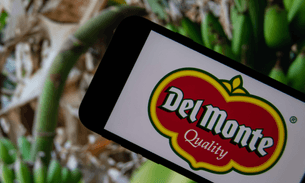
Legal pressures mount for Cargill over River Wye pollution
The case will argue the meat giant knew of the potential environmental consequences of industrial-scale chicken farming
The US meat and grain giant Cargill must compensate those affected by pollution in the River Wye or face court proceedings, lawyers preparing to sue the company have warned.
Legal papers served to the company by the law firm Leigh Day say hundreds of people have suffered loss and damage because of pollution linked to growing industrial chicken farming in the region. The firm also demands that Cargill cleans up the river.
Leigh Day’s letter to the company, seen by the Bureau of Investigative Journalism (TBIJ), also accuses two of Cargill’s UK entities – Avara Foods and Freemans of Newent – of jointly polluting the river with phosphorus. The companies have two months to respond to the allegations.
Natural England downgraded the river’s health rating last year, citing higher phosphorus levels and increased eutrophication – a phenomenon where a build-up of nutrients prompts some plants to grow excessively, depleting oxygen levels.
“Chicken manure is high in phosphorus, having a concentration four to five times higher than other forms of manure,” Leigh Day’s letter states.
Pollution of the Wye has become a national issue as the number of chicken farms nearby has grown. Today, Avara Foods is responsible for more than four fifths of the 20 million birds reared in the region, according to Leigh Day.
Until recently, waste from the farms was frequently spread on nearby land as a fertiliser, where it would run into adjacent waterways, including the Wye and its tributaries.
In the legal papers, Leigh Day accuses Cargill, Avara and Freemans of being responsible for “substantial water quality degradation and widespread algal blooms”, as well as “species decline [and] a loss of income from tourism, water sports, fishing, hospitality and other local businesses”.
Local house prices have also been affected, the letter notes, along with the quality of life for residents living next to industrial-scale farms.
Initially, Leigh Day only named Avara as a defendant, but in May it announced that Cargill would also face action. Avara is a joint venture between Cargill and Faccenda Foods – a major UK poultry processor. There are more than 100 intensive poultry farms in the Wye Valley over which Avara, and thus Cargill, “has significant legal and factual control”, Leigh Day claims.
Avara has previously said it is “confident that there is no case to defend” and that Leigh Day’s civil claim is “a year-old, opportunistic attempt to profit from a serious environmental issue”.
“It has no merit and is not supported by evidence or expert opinion,” the company said in March. “It ignores the long-standing use of phosphate-rich fertiliser by arable farms as well as the clear scientific data showing the issue of excess phosphorus considerably pre-dates the growth of poultry farms in the Wye catchment.”
The letter also notes that Avara supplies 4 million chickens to the UK retail, hospitality and food service sectors, and is a supermarket poultry supplier.
The case will argue that Cargill, which is headquartered in Minnesota but operates around the world, must share responsibility for the pollution of the Wye and related waterways.
Cargill knew of the potential consequences of industrial-scale chicken farming because of similar legal challenges in the US, Leigh Day argues. There, waste from poultry farms from a number of companies – including Cargill – was found to have contributed to historic river pollution in Oklahoma.
Leigh Day’s letter adds that Cargill’s importing of phosphorus-rich soy, which is then used to make poultry feed, has also contributed to the problem. TBIJ previously uncovered how Cargill soy from Brazil is shipped to Liverpool, where it is processed for use in animal feed at farms that supply Avara.
Leigh Day partner Oliver Holland told TBIJ: “We hope that Avara and Cargill will take this opportunity to engage constructively with the substance of the claim and work with us to avoid court proceedings being issued. However, if they do not, our clients will be issuing court proceedings and looking to proceed with this claim through the high court.”
Reporter: Andrew Wasley
Environment editor: Robert Soutar
Deputy editors: Chrissie Giles and Katie Mark
Editor: Franz Wild
Production editors: Frankie Goodway and Emily Goddard
Fact checker: Alex Hess
Impact producer: Grace Murray
Our environment reporting is partly funded by the Montpelier Foundation, the Waterloo Foundation and the Hollick Family Foundation. None of our funders have any influence over our editorial decisions or output.
-
Subject:
-
Area:




